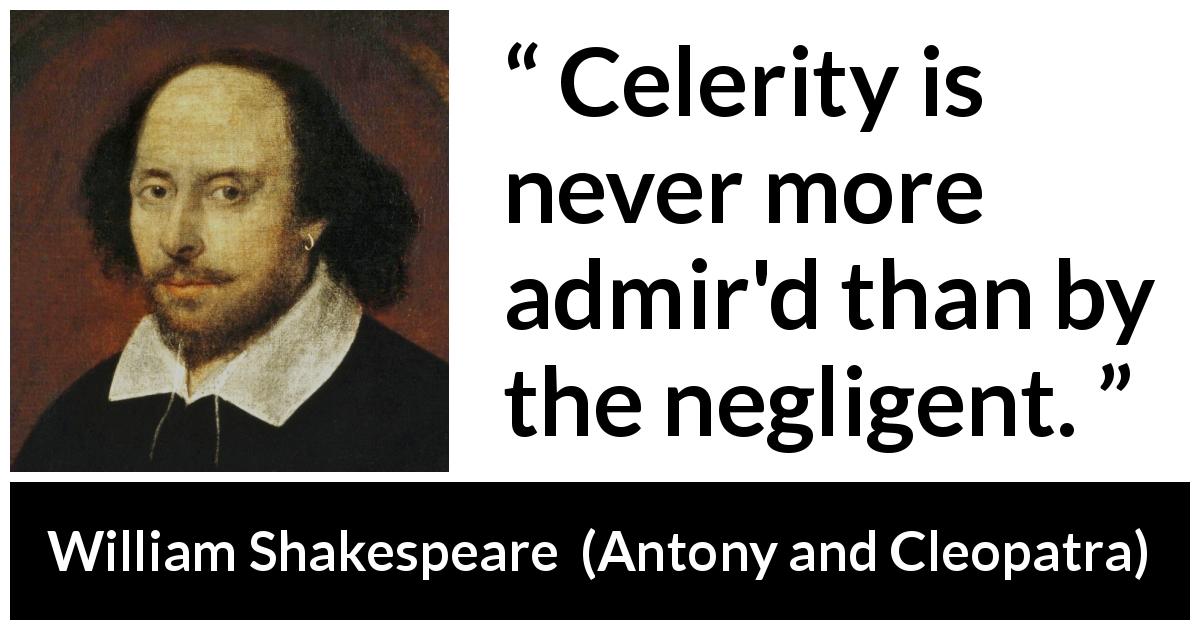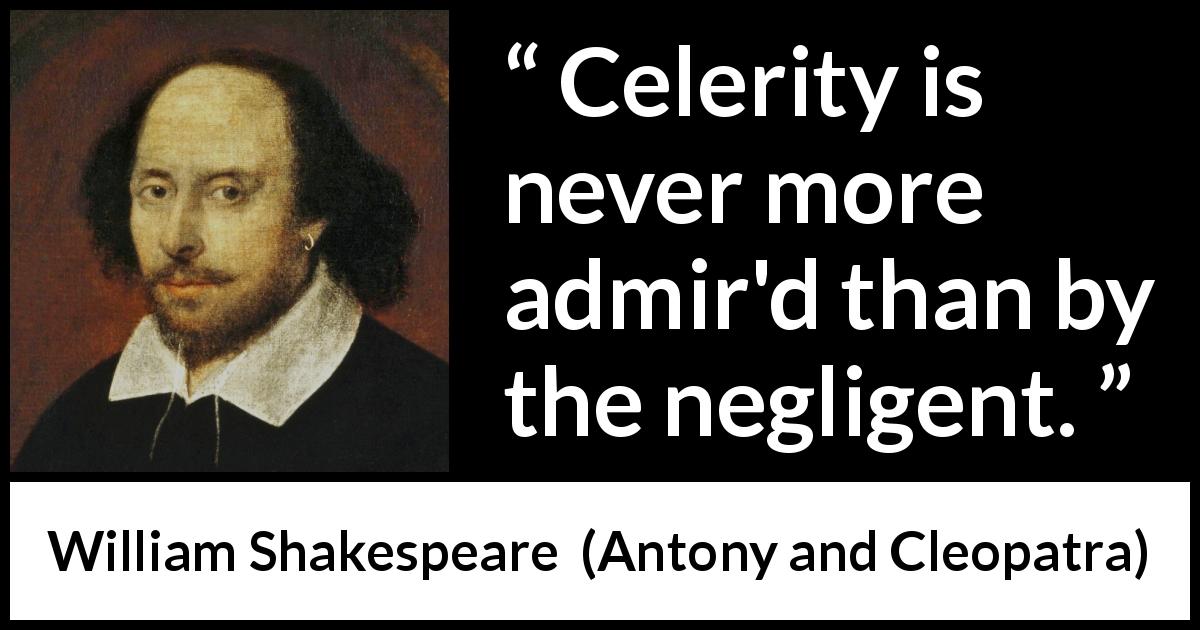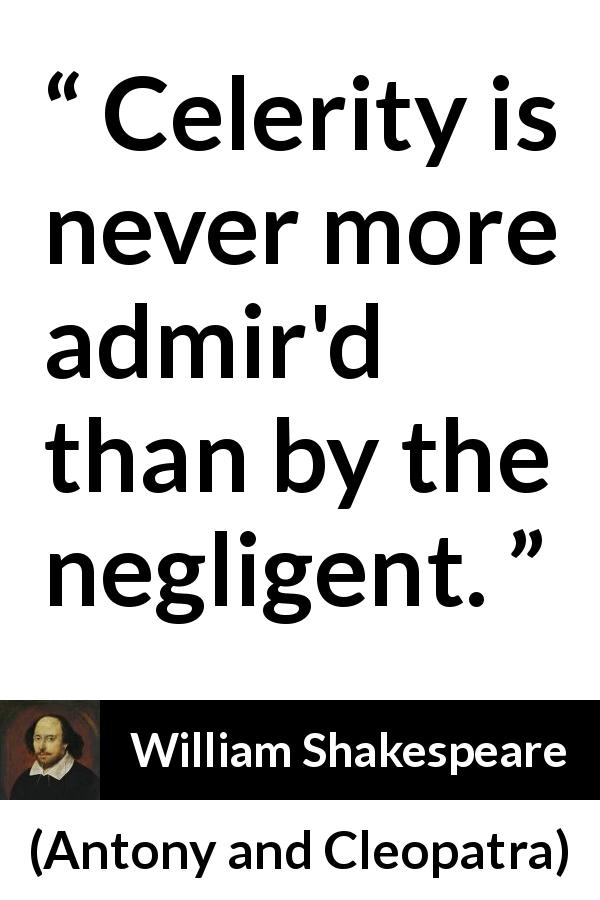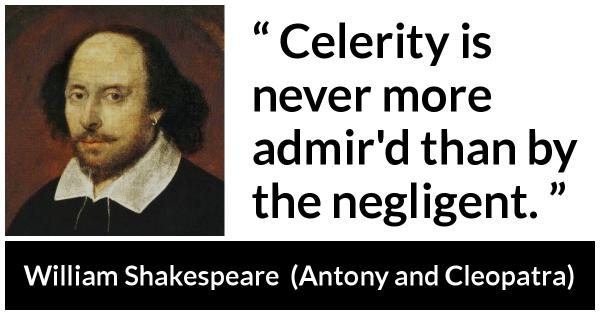“ Celerity is never more admir'd than by the negligent. ”
William Shakespeare, Antony and Cleopatra (1623). copy citation
| Author | William Shakespeare |
|---|---|
| Source | Antony and Cleopatra |
| Topic | care speed |
| Date | 1623 |
| Language | English |
| Reference | Antony and Cleopatra, Act III, Scene 7 |
| Note | Written between 1603 and 1607 Cleopatra line |
| Weblink | http://www.gutenberg.org/cache/epub/1534/pg1534-images.html |
Context
“[Enter ANTONY and CANIDIUS.]
ANTONY. Is it not strange, Canidius, That from Tarentum and Brundusium He could so quickly cut the Ionian sea, And take in Toryne?—You have heard on't, sweet? CLEOPATRA. Celerity is never more admir'd Than by the negligent. ANTONY. A good rebuke, Which might have well becom'd the best of men To taunt at slackness.—Canidius, we Will fight with him by sea. CLEOPATRA. By sea! what else?
CANIDIUS.” source
ANTONY. Is it not strange, Canidius, That from Tarentum and Brundusium He could so quickly cut the Ionian sea, And take in Toryne?—You have heard on't, sweet? CLEOPATRA. Celerity is never more admir'd Than by the negligent. ANTONY. A good rebuke, Which might have well becom'd the best of men To taunt at slackness.—Canidius, we Will fight with him by sea. CLEOPATRA. By sea! what else?
CANIDIUS.” source
Meaning and analysis
Kwize Master
Antony discusses with Canidius the rapidity of a military maneuver. Cleopatra then makes a sharp remark, pointing out that speed only impresses the lazy.
useful
useless

















